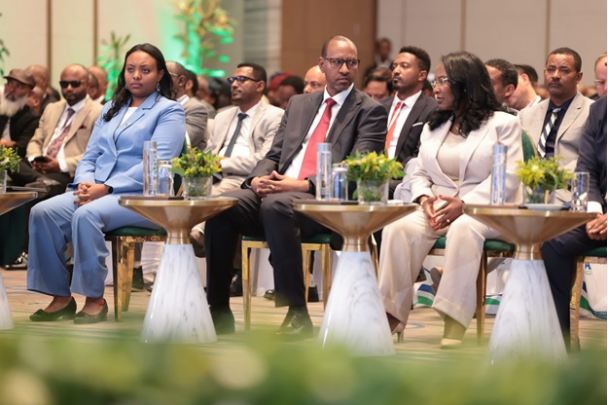
World Environment Day, observed annually on June 5, is one of the major global venues for environmental outreach. The United Nations established it in 1972 as a reminder to take environmental action and encourage sustainable practices.
Every year, the day is themed around a serious environmental issue. Themes have included biodiversity, pollution, climate change, and sustainable consumption. It also raises global awareness and action for the environment. Tree planting, clean-up initiatives, and instructional programs are all activities in which governments, businesses, non-profit organizations, and people participate.
Furthermore, the Day serves as a powerful reminder of the shared obligation to conserve the environment and encourage sustainable living practices. It provides an opportunity for individuals and businesses to consider their environmental impact and take concrete measures toward a more sustainable future.
Since its inception, the Day, which is being observed for the 52nd time internationally and the 32nd time nationally, has been celebrated in Ethiopia on June 5, 2025, in Addis Ababa with various events.
More precisely, the day is celebrated by taking the Clean Ethiopia Campaign initiative into account. Ethiopian Prime Minister Dr. Abiy Ahmed spearheaded the campaign to promote cleanliness and environmental sustainability across the country. It also aims to raise awareness about waste management, sanitation, and the need to keep public spaces clean. The Campaign frequently includes community engagement, educational events, and activities like clean-up drives, tree planting, and recycling efforts.
The initiative complements larger national and international efforts to enhance environmental health and address concerns such as pollution and deforestation. It encourages public participation and collaboration among government agencies, non-governmental groups, and local communities in order to foster a culture of cleanliness and environmental responsibility.
Given the significance of the day and Ethiopia’s efforts, the second round of the Clean Ethiopia and Green Development Movement was officially started in Addis Ababa. This year’s movement, which will run for six months, aims to address a variety of environmental tasks.
Environmental Protection Authority Director General Lelise Neme said that the clean Ethiopia campaign is significant in terms of implementing national environmental protection efforts and long-term green development initiatives.
She added that the Clean Ethiopia Movement is a powerful platform for public engagement and collective action, emphasizing that environmental conservation is everyone’s responsibility. The director general highlighted that achieving Clean Ethiopia requires long-term, countrywide initiatives.
She recalled that during the first Clean Ethiopia Campaign, around 7.3 million people participated in person, and over 30 million engaged through various platforms. As a result, the first round of movements not only helped reduce pollution but also championed citizens’ rights to a clean and healthy environment.
She emphasized that the primary goal of the second Clean Ethiopia Campaign is to instill a culture of cleanliness among all inhabitants, resulting in a clean and safe nation. Hence, in the next six months, approximately 15 million people will be directly involved in the second phase of the Clean Ethiopia Campaign, with an additional 50 million people being reached through media and internet platforms.
She further noted that the second campaign, which will run from June to November 2025, will focus on preventing plastic and noise pollution, soil and water contamination, improving waste management and disposal, and related activities.
Deputy Prime Minister Adem Farah has emphasized the significance of the Clean Ethiopia Campaign in ensuring holistic prosperity by promoting tourism, investment, and diplomatic cooperation.
According to him, the Campaign is helping to create a beautiful and prosperous nation for future generations by ensuring economic and social justice through collective action against environmental pollution.
“The Government of Ethiopia has been striving to achieve the goals of the Green Legacy Initiative, the cities’ corridor development, benefiting 65 towns and cities, rural corridor development, renewable energy utilization, modern waste management, law enforcement, and institutionalization over the past seven years,” he added.
Adem further noted that ensuring a Clean Ethiopia Campaign in a sustainable manner requires prioritizing public awareness, fostering a culture of cleanliness, increasing public participation, enforcing environmental laws and systems, and recognizing top performers in environmental protection.
Addis Ababa City Mayor Adanech Abiebie, for her part, stated that the capital is becoming a model in advancing the goal of a clean Ethiopia. According to her, forest coverage in the city has increased from 2.8% during the reform period to 20%. Additionally, over 76 rivers and riverbanks have been developed. To combat environmental pollution, the city has constructed 454 public toilets, 160 public recreation areas, and 2,133 children’s playgrounds.
She also highlighted that 241 kilometers of bike lanes and electric charging stations have been built in recent years. Similarly, electric public buses and minibuses have been imported to improve the transport system and reduce pollution.
Mayor Adanech stressed that although Ethiopia has contributed minimally to climate change, it remains highly vulnerable to its effects. Like many other countries, Ethiopia faces environmental challenges, which is why initiatives like the Green Legacy campaign, under which millions of trees are planted annually, are so vital. She affirmed that such efforts will continue to yield significant results.
Social Affairs Advisors to the Prime Minister, Deacon Daniel Kibret, urged the mass media to strengthen their responsibilities by integrating the green economy and cleanliness with national development.
According to him, Ethiopians have a good culture of preserving their environment. Hence, it is important to use this social capital to make the country clean and ensure green development. The government has carried out enormous activities regarding green development and environmental protection.
Accordingly, the mass media should make concerted efforts with a view to achieving the intended outcomes through the Clean Ethiopia Initiative. The mass media in particular should bolster their efforts in making Ethiopia Clean and Green. In this regard, the second Clean and Green Ethiopia will create an enabling environment and successive public awareness to carry out the campaign’s objective.
In general, combining the Clean Ethiopia Campaign with World Environment Day can help the country to promote local acts that contribute to a cleaner, healthier environment. This combination not only promotes the significance of environmental stewardship but also inspires communities to work together to achieve sustainability. Both projects can have a long-term impact on Ethiopia’s environmental landscape by focusing on common goals, joint actions, and effective advocacy. Furthermore, the Clean Ethiopia Campaign may successfully integrate with this historic day, resulting in a synergistic approach to promote environmental sustainability and community participation in Ethiopia.
BY EPHREM ANDARGACHEW
THE ETHIOPIAN HERALD SUNDAY EDITION 8 JUNE 2025




